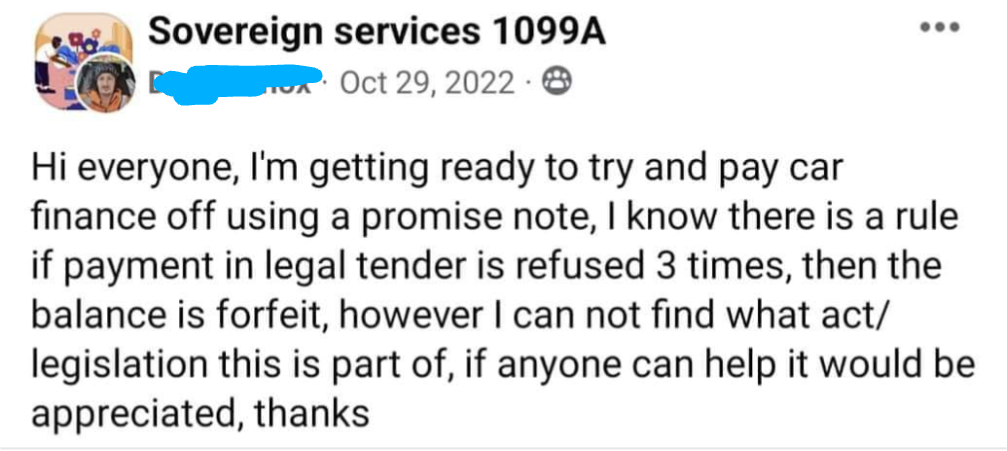Actually Tort law in every state makes any debt null and void if payment in legal tender is refused. A promise note, whatever the fuck that is, does not constitute legal tender. That's why your dollar bills say they're legal tender for all debts public and private. And also why people have gotten away with paying large debts in pennies just to be an asshole.
As they say, In God we trust, all others pay cash.

